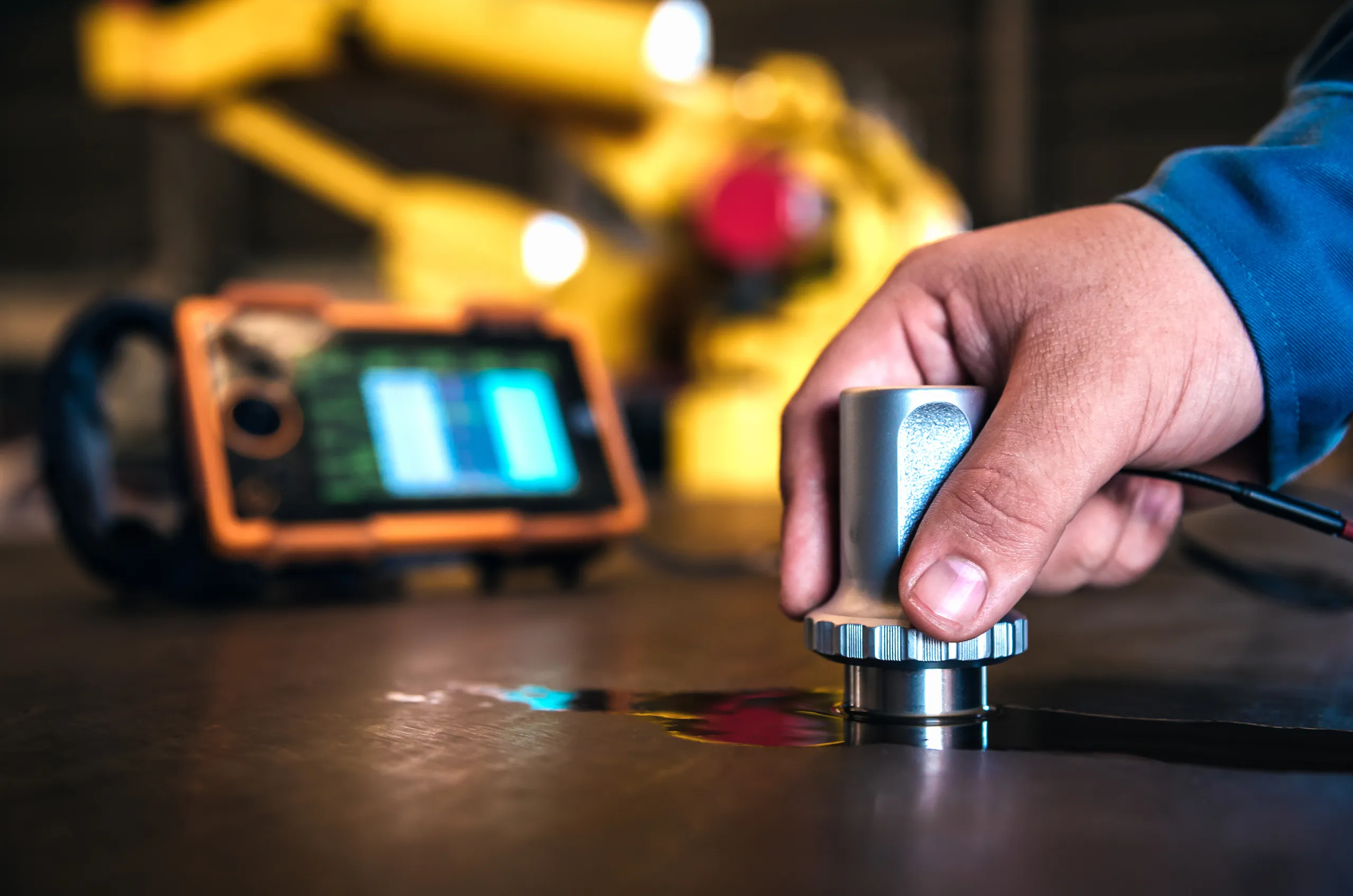NF EN 13813 Magnetic Particle Non Destructive Testing in Vehicle Manufacturing
The NF EN 13813 standard specifies the requirements and procedures for magnetic particle testing (MT) of ferromagnetic materials used in automotive manufacturing. This non-destructive method is critical for detecting surface and near-surface discontinuities that could lead to potential failures, ensuring vehicle safety and reliability.
The scope of this service encompasses a wide range of applications within the automotive sector, including but not limited to, weld inspections, forging checks, and heat treatment verification. By adhering to NF EN 13813, manufacturers can ensure compliance with international standards while maintaining high-quality production processes.
In the context of vehicle manufacturing, magnetic particle testing is particularly useful for identifying flaws in components like axles, engine parts, transmission gears, and structural elements before they are assembled into larger assemblies. This ensures that any imperfections or weaknesses can be addressed early in the production cycle, minimizing rework and improving overall product quality.
The process involves applying a magnetic field to the component under inspection using either a portable magnetizer or permanent electromagnet. Once the field is established, a suspension of ferrous particles (usually iron oxide) is applied to the surface. When cracks or other defects are present in the material, they disrupt the magnetic flux lines, causing the surrounding particles to accumulate around these areas, thus highlighting the flaw.
One significant advantage of magnetic particle testing lies in its ability to detect very small discontinuities that may not be visible through visual inspection alone. This makes it an indispensable tool for quality assurance teams responsible for identifying and rectifying issues early in the manufacturing process. Additionally, since magnetic particle testing does not alter or damage the component being inspected, it is considered a non-destructive method suitable for repeated inspections if necessary.
Another key benefit of this technique is its versatility across various materials used in automotive production. From steel alloys to cast irons, different techniques can be employed depending on the specific properties and requirements of each material type. This flexibility allows manufacturers to tailor their testing procedures according to the unique challenges posed by diverse component designs.
Furthermore, NF EN 13813 emphasizes the importance of proper training for personnel conducting these tests. Only certified operators should perform magnetic particle inspections to ensure consistent results and adherence to industry best practices. Regular calibration and validation of equipment also play crucial roles in maintaining accuracy throughout the testing process.
To summarize, NF EN 13813 Magnetic Particle Non Destructive Testing provides a robust framework for detecting surface and near-surface defects within automotive manufacturing processes. By leveraging this standard, companies can enhance product safety, improve operational efficiency, and maintain stringent quality control measures throughout their production lines.
Benefits
- Detection of Surface & Near-Surface Defects: Magnetic particle testing is highly effective at identifying small cracks or other imperfections that could compromise the integrity of automotive components.
- Non-Destructive Inspection: This method allows for repeated inspections without causing any damage to the component under test, making it ideal for quality assurance purposes.
- Versatility Across Materials: The technique can be adapted to suit various materials commonly used in automotive manufacturing, ensuring comprehensive coverage across different parts and assemblies.
- Enhanced Product Safety: Early detection of potential flaws through rigorous testing helps ensure that only safe and reliable components are incorporated into vehicles.
Eurolab Advantages
At Eurolab, our expertise in magnetic particle non-destructive testing extends beyond mere compliance with NF EN 13813. Our team of highly skilled professionals brings extensive experience and cutting-edge technology to every project, ensuring unparalleled accuracy and reliability in all tests conducted.
We offer a comprehensive range of services designed specifically for automotive manufacturers, including initial consultation on optimal inspection strategies, hands-on training sessions for personnel involved in testing activities, and ongoing support through regular calibration checks and equipment maintenance. These offerings not only enhance the efficiency of your internal processes but also contribute significantly to maintaining high standards of quality control.
Our state-of-the-art facilities are equipped with advanced magnetic particle testing machines capable of handling even the most complex automotive components. Leveraging these resources, we can provide precise and consistent results that meet or exceed industry expectations.
In addition to technical excellence, Eurolab prides itself on delivering personalized service tailored to individual client needs. Whether you require one-off inspections or ongoing support for a continuous production line, our dedicated team is committed to meeting your requirements with professionalism and precision.
Environmental and Sustainability Contributions
Magnetic particle non-destructive testing plays an essential role in promoting environmental sustainability within the automotive industry. By ensuring that only high-quality components enter into use, this method helps reduce waste associated with defective products that might otherwise end up as scrap or landfills.
The non-invasive nature of magnetic particle testing further contributes to minimizing resource consumption by avoiding unnecessary repairs or replacements due to undetected flaws. This translates directly into reduced energy usage and lower carbon footprints throughout the entire production lifecycle.
Moreover, adhering strictly to NF EN 13813 ensures that all tests are conducted using environmentally friendly practices whenever possible. For instance, proper handling of magnetic suspensions and waste management during testing contributes positively towards reducing pollution levels both locally and globally.
In conclusion, implementing magnetic particle non-destructive testing as per NF EN 13813 not only enhances product safety but also supports broader goals related to sustainability and resource conservation within the automotive sector.





